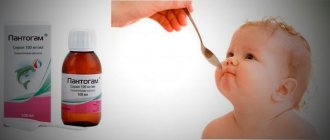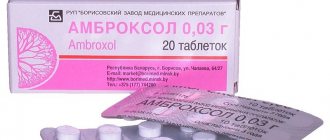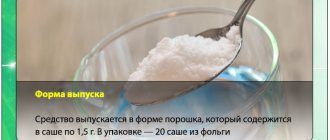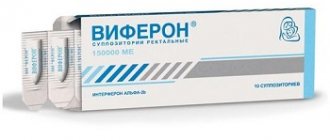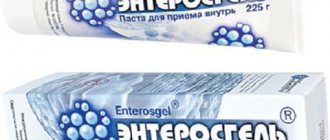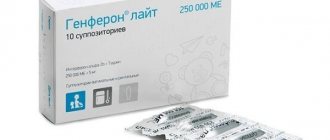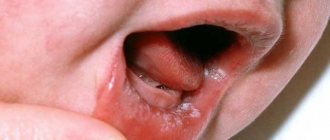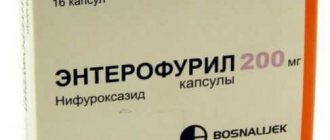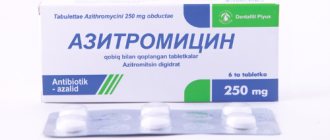In autumn, the season of colds and ARVI begins. In this regard, parents want to protect their child from viral diseases. Nowadays you can find many products in the pharmacy to combat viruses and infectious diseases. At the moment, a popular drug is Cytovir-3.
It is good because it has a positive effect on the body, its immune defense increases. It has a good effect on the immune system, thus increasing the body's resistance to viruses. The drug for children must be purchased in the form of an emulsion or syrup.
Release form
The drug is produced in several forms. These include the following:
- Syrup for children. The cardboard package contains a dark bottle with a 50 ml dosage of syrup, a measuring cup or spoon and an insert with instructions for use.
- Powder for preparing a suspension. This release form is also used for children and contains one type of flavoring (cranberry, orange or strawberry). The color of the suspension is from white to yellowish. The powder is available in dark bottles of 20 g. The cardboard packaging contains a measuring spoon and an annotation insert.
- Capsules for adults, placed 12 pieces in polymer jars or contour cells. Cardboard packaging contains 1, 2, 4 contour cells.
In childhood, syrup or powder is usually used to prepare a solution. Kids are happy to take medicine that has a pleasant fruit or berry taste. A photo of the medication can be seen in the article.
Compound
Tsitovir 3 belongs to complex drugs that have an immunostimulating effect. This is ensured thanks to its unique composition. The main active component is sodium alpha-glutamyl-tryptophan.
In addition, the medicine contains ascorbic acid, lactose monohydrate, calcium stearate, flavorings, purified water, sucrose. Country of origin: Russia.
Therapeutic effects
Cytovir-3 syrup has an immunostimulating effect; it increases the functional activity of the immune system due to the main active components included in its composition:
- Bendazole is an immunomodulator, stimulates the secretion of interferon by immunocompetent cells, suppresses the replication (doubling of genetic material) of viruses inside infected cells.
- Thymogen – enhances the therapeutic effects of bendazole, normalizes the functional activity of the T-cell component of immunity.
- Ascorbic acid (vitamin C) - improves the functioning of the humoral immune system, increases the synthesis of antibodies by the corresponding cells (B-lymphocytes, plasma cells), reduces capillary permeability, helping to reduce the severity of edema and the inflammatory reaction, is a natural antioxidant, binds free radicals (fragments of organic molecules , which have unpaired electrons in their structure, are highly chemically active and damage the membrane structures of cells).
The active components of Cytovir-3 syrup are well absorbed into the systemic circulation from the intestine. They preferentially accumulate in cells of the immune system, providing therapeutic effects.
Contraindications
The antiviral drug Cytovir 3 has some contraindications. In this regard, it should be taken only after consultation with a specialist. This will help avoid many side effects and unwanted consequences. Contraindications include:
- Allergy to components included in the product.
- The syrup should not be taken by patients suffering from diabetes mellitus due to the sugar content in it.
- The patient is prone to thrombosis.
- Thrombophlebitis.
- Conditions in the patient accompanied by increased blood clotting.
- Atopic form of bronchial asthma.
- Increased muscle tone.
- Child age up to one year for syrup and suspension.
- For capsules, children under 6 years of age.
- Pregnancy and lactation for capsules.
You may be interested in: Lazolvan syrup for children: instructions for use
Syrup and suspension are prescribed during breastfeeding with extreme caution and only under the close supervision of a specialist.
It is important to consider how much the benefits of taking the medicine outweigh the possible harm.
Instructions for use
To achieve a better therapeutic effect, it is recommended to introduce the drug as part of complex treatment for influenza and ARVI from the first days of the disease. For the purpose of prevention, patients over 6 years of age are recommended to take one capsule three times a day. The medication should be taken after meals with a sufficient amount of water.
Expert opinion
Ksenia Dunaeva
User experience expert and comment moderator. Higher medical education and more than 5 years of actual practice.
Ask Ksenia
The duration of the course of treatment is selected by the doctor taking into account the patient’s diagnosis and the severity of clinical manifestations in a particular patient.
For children from 1 year to 6 years old, the medicine is used exclusively in the form of a solution or syrup. The dose is selected by the doctor taking into account the child’s age and weight. The standard dosage of Cytovir 3 is described in the table.
| Age | Dose of the drug in milliliters | Frequency of reception |
| 1-3 years | 2 | 3 |
| 3-6 years | 4 | 3 |
| 6-9 years | 8 | 3 |
| 9-12 years | 12 | 3 |
The duration of treatment without a doctor's prescription cannot exceed four days. The same dosage is taken for preventive purposes.
Capsules for children under 6 years of age cannot be used. They contain a higher dosage of the active ingredient, intended exclusively for patients over 6 years of age.
Indications
Taking the drug we are considering is indicated for the prevention and treatment of the early stages of influenza types A and B, adenoviruses, rhinoviruses and other common acute respiratory viral infections.
It should be noted that the use of this drug for preventive purposes significantly reduces the risk of contracting a viral infection, and taking it when the first painful symptoms appear significantly reduces the duration and severity of the disease.
Possible side effects
Reviews from doctors and parents indicate that Cytovir 3 in any form of release is well tolerated by patients. Despite this, some side effects may develop during treatment. These include:
- Slight decrease in blood pressure. More often, this condition is observed in patients suffering from neurocirculatory dystonia.
- Skin manifestations such as rash and itching may occur. If such a symptom appears, treatment should be stopped. To eliminate negative signs, the patient is given antihistamines.
- Abdominal pain, nausea, loss of appetite.
Side effects are more common due to improper use of the drug or non-compliance with its dosage.
special instructions
According to the instructions for use, Tsitovir 3 in capsule form is prescribed exclusively to patients over 6 years of age. Children under 6 years of age are recommended to be treated with syrup and suspension. The medication is prescribed by a specialist after examining the patient and making a diagnosis.
You might be interested in: Zinnat suspension: instructions for children
When repeating courses of treatment and taking the medication for more than 5 days, it is recommended to carry out laboratory monitoring of the concentration of sugar in the patient’s blood.
Drug interactions
There is no exact information about the interaction of the main active component of Cytovir 3 with other medicinal substances. It is known that when ascorbic acid is combined with tetracycline and benzylpenicillin, the concentration of the latter in the patient’s blood serum increases.
In addition, in combination with iron-containing preparations, vitamin C improves their absorption. When combined with anticoagulants, their effect is reduced.
Aspirin slows down the absorption of ascorbic acid. Aspirin has been proven to reduce the absorption of vitamin C by 30%. At the same time, the risk of developing crystalluria increases.
When taking Tsitovir 3 simultaneously with barbiturates, ascorbic acid is excreted in the urine more quickly. In combination with diuretics, the hypotensive effect of the latter is enhanced.
Pharmacological properties
Pharmacodynamics
Cytovir-3 syrup for children is a means of immunostimulating and etiotropic therapy. The drug has indirect antiviral activity against influenza A and B pathogens and other viruses that cause acute respiratory infections (acute respiratory diseases).
When using syrup, the severity of the main clinical signs of ARVI (acute respiratory viral infections) and influenza is reduced, the overall duration of the disease is reduced and the risk of complications is reduced.
The drug increases the content of sIgA (secretory immunoglobulin A) in the mucous membrane of the nasopharynx, which is the entrance gate of infection, thereby strengthening local immunity to respiratory bacterial and viral infections.
When used for preventive purposes, Cytovir-3 syrup for children enhances the metabolic activity of monocytes and neutrophil granulocytes (innate immune cells). Due to this, in the event of an infection developing, their ability to absorb and destroy viral and bacterial agents increases (due to an increase in the number of phagocytic cells, increased oxidative activity and the synthesis of cationic proteins). At the same time, the initial metabolic activity of innate immune cells is unchanged and in the absence of pathogenic viruses and bacteria it is within normal limits.
Bendazole, which is part of the syrup, has immunomodulatory properties. It induces the production of endogenous interferon, and enzymes, the synthesis of which is stimulated by this interferon, inhibit viral replication.
Thymogen (alpha-glutamyl-tryptophan) normalizes the T-cell component of immunity, exhibiting synergy with the immunomodulatory effect of bendazole.
Ascorbic acid has antioxidant properties (it neutralizes free oxygen radicals formed during the inflammatory process), normalizes the permeability of small blood vessels, reducing inflammation, and also activates the humoral immune system, that is, it increases the body's resistance to infections.
Pharmacokinetics
Absorption of the drug is complete. The bioavailability of ascorbic acid is up to 70%, bendazole is about 80%, and thymogen is no more than 15%.
Absorption of ascorbic acid occurs mainly in the jejunum; it is 25% bound to plasma proteins. The time to reach maximum plasma concentration is 4 hours. Ascorbic acid easily penetrates platelets, leukocytes and other body tissues and passes through the placental barrier. The binding of ascorbic acid in the intestine decreases in patients with diseases of the gastrointestinal tract, helminthic infestation, giardiasis, as well as when consuming fruit and vegetable juices and alkaline drinks. Metabolism occurs mainly in the liver. First, ascorbic acid is converted into deoxyascorbic acid, which then decomposes into oxaloacetic and diketogulonic acids. Metabolites and unchanged ascorbic acid are excreted through the intestines, kidneys, breast milk and secretions of the sweat glands.
Bendazole is biotransformed by carboethoxylation and methylation of the imino group of the imidazole ring. As a result, two metabolites are formed - 1-carboethoxy-2-benzylbenzimidazole and 1-methyl-2-benzylbenzimidazole. They are excreted in the urine.
Thymogen, under the influence of peptidases, is broken down into L-tryptophan and L-glutamic acid, which are then used in the process of protein synthesis.
Overdose
If the dosage is significantly exceeded, the patient may experience symptoms such as decreased blood pressure, dizziness, nausea, lethargy, apathy, and fever. What to do in case of overdose?
In this case, it is important to refuse further treatment and consult a doctor. Treatment for overdose is usually symptomatic.
Analogs
For many mothers, the question of how to replace Cytovir 3 is important if the child is allergic to the drug or has other contraindications to taking it. Some analogues are cheaper, others are more expensive, but, be that as it may, only a doctor should select medications. Self-medication can be extremely dangerous for your child. The main analogues include the following medications:
- Kagocel.
- Arbidol.
- Anaferon drops.
- Viferon candles.
- Ergoferon tablets.
- Orvirem.
Each medicine has its own indications and contraindications. Medicines should be used only after consultation with a doctor, according to the instructions for use and only under strict medical supervision.
Read more about Viferon children's candles in our article.
Reviews
- Angela: “I have three children. Last fall, the eldest went to kindergarten for the first time, and it started: ARVI, snot, etc. And the other two constantly caught it from him. It was an endless circle of hell! Until we changed the doctor, and he prescribed us Cytovir 3 syrup as part of the complex treatment. Indeed, things went much better. Diseases began to reach us less and less, but now everything, in principle, has returned to normal. It’s a good drug, but the price is steep, that’s true.”
- Lilia: “I tried giving Cytovir to my 3rd daughter for the first time a couple of weeks ago. As a rule, treatment of any ARVI in our country began with a whole bunch of antiviral drugs, but ended with antibiotics anyway. But thanks to this syrup, we began to recover for the first time already on the 3rd day after taking the medicine, and after the 4th and last day we were completely healthy. I was very pleasantly surprised. I recommend it, it’s a good antiviral!”
- Oksana: “Tsitovir 3 is a vivid example of how a real antiviral agent should work! The course of taking it is 4 days, and during these 4 days this medicine puts you completely back on your feet. Now I would never exchange Cytovir 3 for all sorts of Arbidols, Viferons and other antiviral analogues for children, even if they are cheaper.”
- Olga: “I take this drug as a preventive course in the midst of influenza epidemics. And I’ll tell you honestly, I haven’t had enough viruses for 3 years now! An effective remedy!
- Valentina: “This remedy was recommended to me by a very reputable general practitioner in our city. Therefore, I did not doubt for a second that it was actually good, since he would not have advised nonsense. And so it turned out: Cytovir 3 put my child on his feet in 4 days. There was no trace left of the disease. Now the whole family is treated with it. Always a great help."
Benefits of the drug for children
Tsitovir 3 has a relatively safe composition. In this regard, the medicine is well tolerated by children and adults and rarely causes side effects. In addition, the benefits of the product include:
- Few contraindications.
- Relatively safe composition.
- Good tolerance of the product.
- You can buy the medicine at any pharmacy.
- Tsitovir 3 is relatively inexpensive.
- Can be used for treatment and prevention.
- Possibility of use from 12 months.
You might be interested in: Antiviral drugs for children over 3 years old
Clinical studies have shown that the medication has an excellent therapeutic effect.
If treatment for influenza or ARVI is started from the first days of the disease, it is possible to significantly speed up the recovery process.
Dosage
Cytovir-3 syrup is intended for oral administration before meals. Recommended dosages and regimen of use of the drug for the treatment and prevention of acute respiratory viral infections depend on the age of the child:
- Children from 1 year to 3 years – 2 ml 3 times a day.
- Children from 3 to 6 years old – 4 ml 3 times a day.
- Children from 6 to 10 years old – 8 ml 3 times a day.
- Children over 10 years old - 12 ml 3 times a day.
The average duration of the course of therapy and prevention is 4 days. If necessary, this course of taking Cytovir-3 syrup can be repeated after 3-4 weeks.
